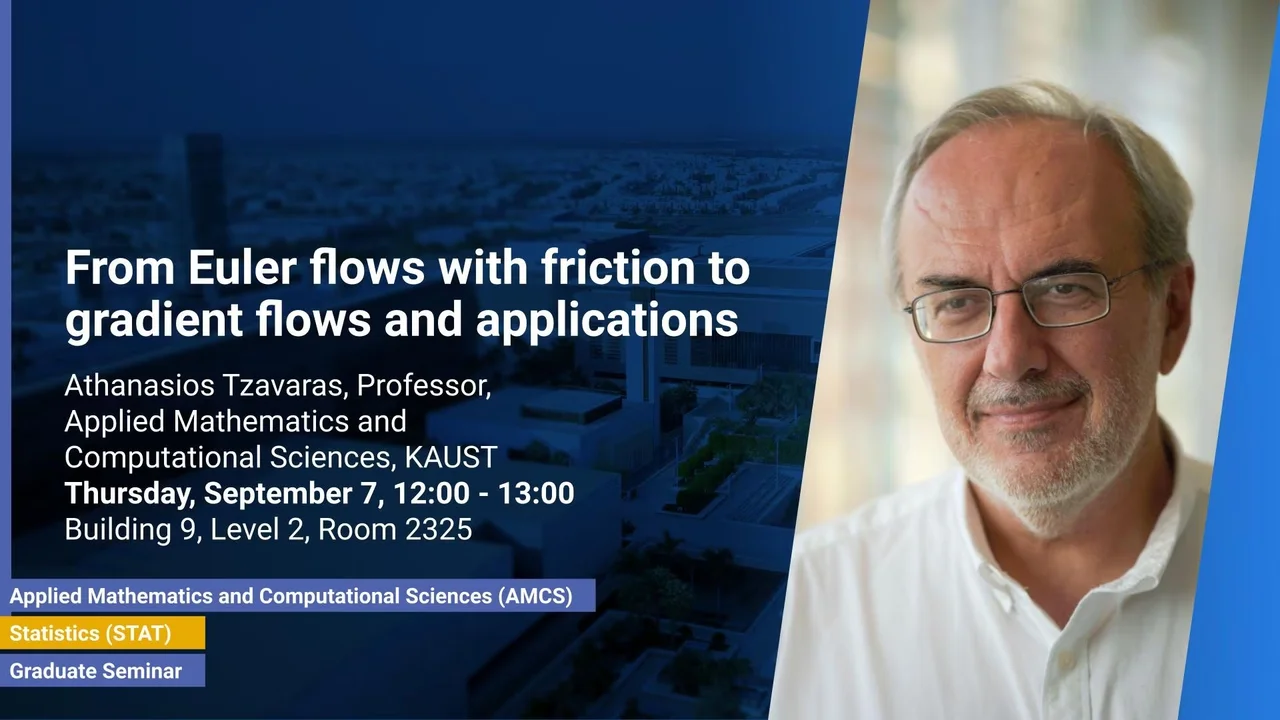
From Euler flows with friction to gradient flows and applications
I will review some works on the high-friction limit (or small mass approximation) from Euler flows to advection-diffusion systems that are gradient flows, and related asymptotic problems in fluid mechanics. The formulation exploits the variational structure of compressible Euler flows and is connected to the interpretation of nonlinear Fokker-Planck systems as gradient flows in Wasserstein distance.
Overview
Abstract
I will review some works on the high-friction limit (or small mass approximation) from Euler flows to advection-diffusion systems that are gradient flows, and related asymptotic problems in fluid mechanics. The formulation exploits the variational structure of compressible Euler flows and is connected to the interpretation of nonlinear Fokker-Planck systems as gradient flows in Wasserstein distance. Various classical examples fit into that framework like the emergence of porous media as the high friction limit from the compressible Euler equations with friction, or obtaining Cahn-Hilliard from the quantum-hydrodynamics equations. More complex examples relate to the high-friction limit form bipolar Euler-Poisson models to the bipolar drift-diffusion equations, as well as other asymptotic limit problems for electromechanical models like the zero-electron mass limit in plasmas. Last example is the emergence of the Maxwell-Stefan diffusion system from multicomponent flows of compressible gases.
Brief Biography
Athanasios (Thanos) Tzavaras received a Diploma in Naval Architecture in 1981 from the National Technical University of Athens and a Ph.D. in Applied Mathematics in 1985 from Brown University. He held faculty appointments at Purdue University (1985-87), the University of Wisconsin-Madison (1987-2002), the University of Crete (2002-05 and 2008-2014), and the University of Maryland - College Park (2005-10). From 2014 he is Professor of Applied Mathematics and Computational Science in the King Abdullah University of Science and Technology(KAUST). His research expertise lies on Mathematical Modeling and the Analysis of Nonlinear Partial Differential Equations.